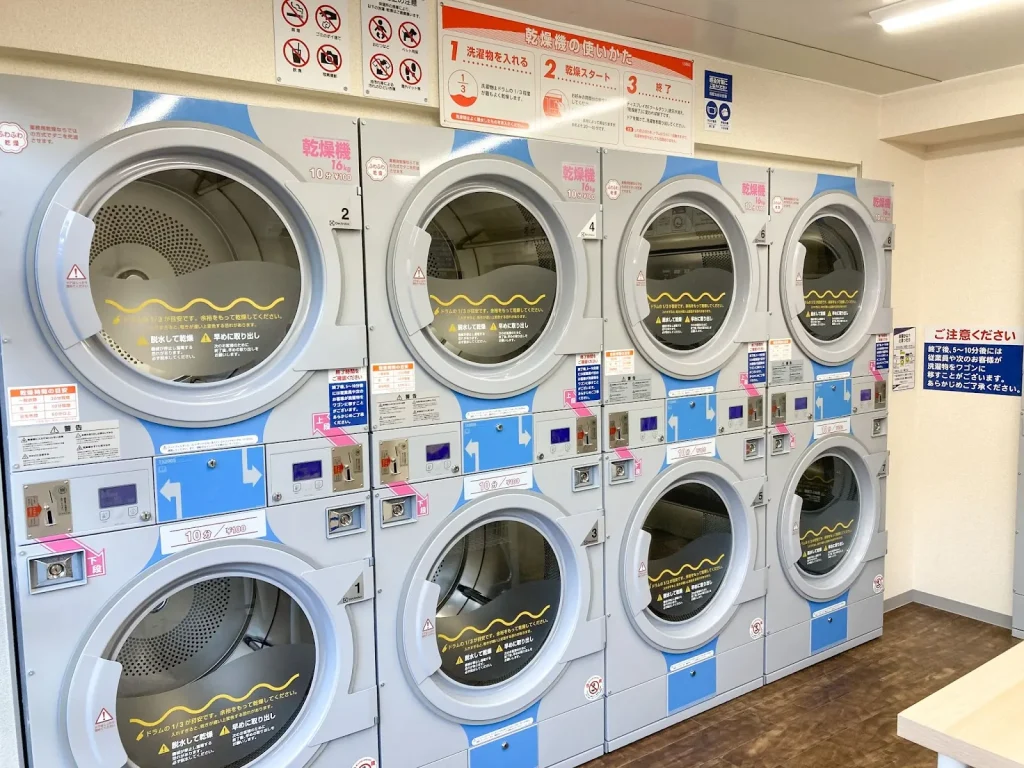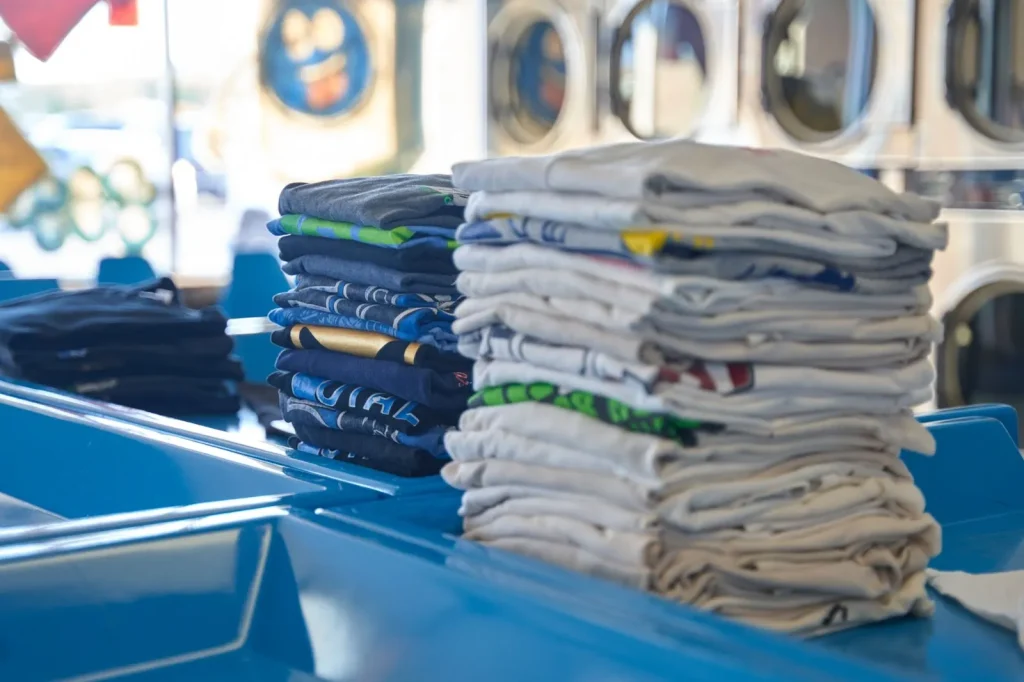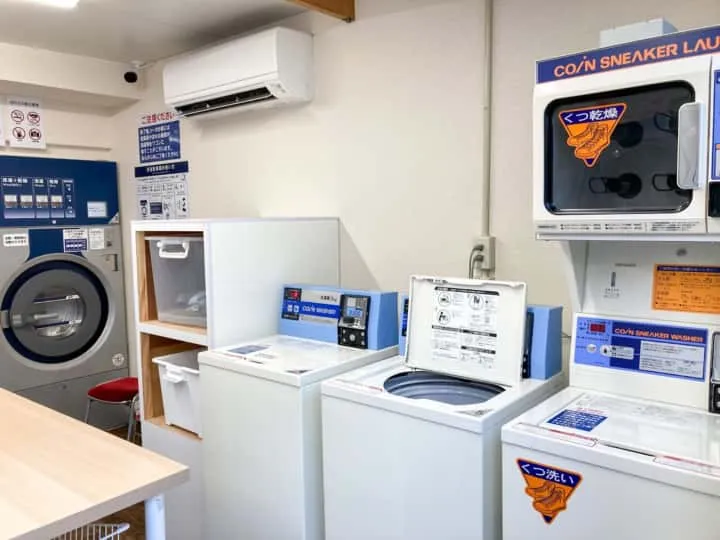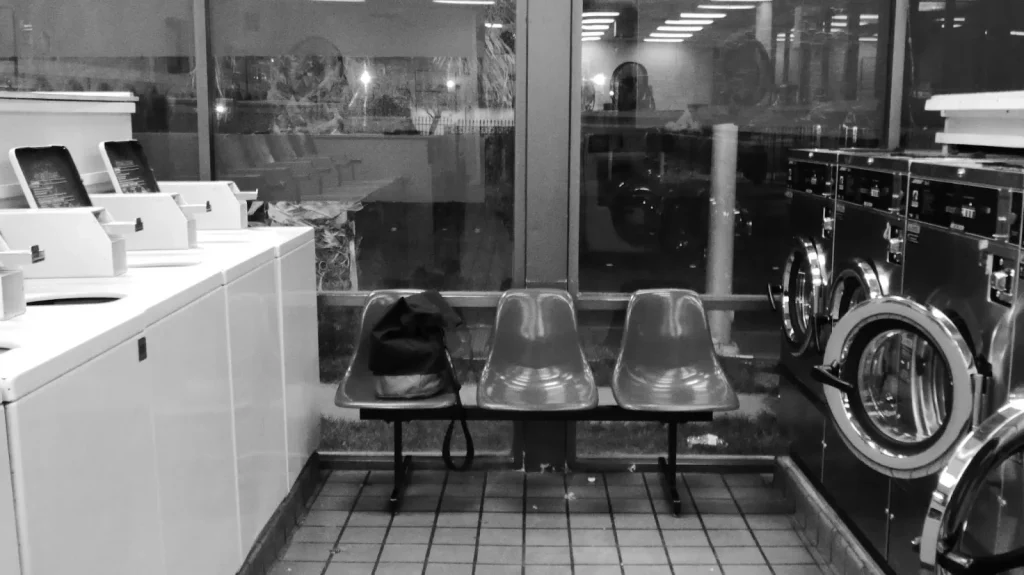How to use a laundromat in Japan? Necessary belongings and price rates are also explained.

If you have a washing machine at home, you can wash your own clothes whenever you like, but if it should break down or you need to wash items that cannot be washed in a home washing machine, such as large futons or carpets, laundromats are very convenient.
Especially in Japan, during the humid rainy season and typhoon season, it is sometimes difficult to dry laundry indoors, so using a dryer in a laundromat is an easy solution to drying problems. It is very reassuring to know how to properly use a laundromat in Japan.
In this article, we will explain in detail how to use laundromats in Japan, as well as items to bring, price quotes, estimated waiting times, and even some precautions when using laundromats. By reading this article, you will be able to use laundromats smartly.
▼Goandup Picks Click here for recommended articles!
- Required before studying abroad! Goandup Nihongo+, an online Japanese language learning service
- This page introduces services for foreigners who wish to study in Japan or improve their Japanese language skills to learn Japanese online.
- Goandup Salon" community for foreigners living in Japan
- We introduce an online community where foreigners living in Japan can exchange information and interact with each other to support their life in Japan.
- Goandup Study" supports foreigners who want to study in Japan.
- This section introduces study abroad support services that provide comprehensive support to foreigners who wish to study in Japan, from preparation for study abroad to living in Japan.
- Where can I buy a prepaid SIM in Japan? Recommended SIM cards for foreigners are also introduced.
- How to purchase a prepaid SIM and suitable SIM cards for foreigners.
- The Complete Guide to Pocket Wi-Fi in Japan for Foreigners!
- We introduce how to select and recommend pocket Wi-Fi products that can be used conveniently in Japan.
- The Complete Guide to Finding a Job in Japan! Finding a job, changing jobs, and part-time work for foreigners
- This site provides foreigners who want to work in Japan with comprehensive information on how to find a job, recommended job sites, and other information necessary to find a job.
Basic Knowledge of Japanese Laundromats

A laundromat in Japan is literally a public facility with washing machines and dryers that can be used by inserting coins.
Currently, there are approximately more than 25,000 laundromats throughout Japan, some of which are open 24 hours a day.
It is relatively easy to find them, as they are often attached to business hotels, weekly (monthly) apartments, and public bathhouses, as well as in the city.
1. how to find a laundromat nearby: does the hotel have one?
A map application on your cell phone is very useful for finding laundromats near where you live or stay.
You can also easily find laundromats in Japan at the following websites. These sites are available in Japanese, but you can use them to search for a laundromat in your desired area by address or zip code.
If you are staying at a business hotel or lodging facility, there are often coin-operated laundries on the premises, a very convenient service for guests staying for an extended period of time. When staying at a hotel, ask at the front desk about the availability and location of coin-operated laundries. You can easily wash your clothes during your stay and enjoy your trip more.
Do I need detergent for the laundromat? What do I need to bring?
Most laundromats in Japan provide detergent, so there is basically no need to bring your own detergent. Most washing machines are of the type that automatically throw in detergent and fabric softener.
However, some stores are equipped with washing machines that allow you to throw in your own detergent.
In such cases, you can purchase useable detergent from vending machines located in the laundromat, but if this is your first visit to a laundromat, you may want to bring your own detergent just in case.
To use the laundromat, please bring the following items
- Cash (100 yen coins or 500 yen coins)
- the washing
- Laundry net (a laundry net is useful to prevent damage to clothes)
- laundry bag
In addition to this, if you need dryer sheets (fabric softener sheets), you may want to bring them with you.
Approximate laundromat charges and waiting time
The washing machine charges about 500 yen per 10 kg of typical clothing, and the estimated waiting time is 30 minutes.
The dryer charges 100 yen for 10 minutes, and a typical garment will dry for about 30 minutes, or 300 yen.
For a one-person household with 3 days' worth of laundry weighing approximately 4-5 kg, the cost for washing and drying would be approximately 700-800 yen, and the estimated waiting time would be about 1 hour.
Please note, however, that the amount and time may vary slightly depending on the machine.
4. Payment methods available at laundromats
In Japan, cash is still the most common method of payment at laundromats. In most cases, 100 yen or 500 yen coins are required to wash and dry clothes. However, in response to the demand for convenience, various payment methods have recently been introduced.
In particular, some stores are now accepting payments via QR codes and smartphone apps, even when they do not have cash on hand. These cashless payments are gradually gaining popularity because they are hassle-free and smooth.
In addition, some laundromats have introduced prepaid cards. This is a system whereby a certain amount of money is charged to a card in advance, and the card is used to pay for washing and drying. Using a prepaid card eliminates the need to have change ready, and in some cases, there are special offers such as discounts available only to card users.
When using a laundromat, it is a good idea to check in advance which payment methods are available.
What can I wash in a laundromat? Can I wash futons and sneakers?
In addition to shirts, socks, and other common clothing, Japanese laundromats can also wash down quilts, blankets, sheets, and other bedding, as well as carpets and curtains.
Some stores also have "sneaker laundries" that wash shoes exclusively, so shoes made of cloth, synthetic fiber materials, and sneakers can also be laundered.
How to use a laundromat in Japan

Japanese laundromats are equipped with washers, dryers, and washer/dryers.
It is best to use a washer and dryer if you want to wash and dry your clothes, or a dryer if you just want to dry your clothes, depending on your purpose.
The basic usage of a Japanese laundromat is as follows
1. how to use the washer/dryer
- Put the laundry you brought into an empty washing machine and close the door (and add detergent if necessary).
- Insert coins for the indicated fee and press the start button.
- Remove laundry when finished.
2. how to use the dryer
- Put washed clothes in an empty dryer and close the door.
- Insert coins for the indicated fee.
- Remove laundry when finished.
Manners and precautions when using a laundromat

Finally, here are some manners and precautions when using a laundromat in Japan.
1. no change: bills must be exchanged for money.
The washers and dryers in Japanese laundromats are basically designed not to give out change. When using them, please make sure to insert coins as indicated on the label.
Many laundromats also have money-changing machines that allow you to exchange large bills for the coins you need. However, since some may not have money changers, it is advisable to prepare small change in advance for smooth use.
Check the material of the laundry and the contents of the pockets.
While you can use the washer and dryer for general clothing, some clothes are made of materials that are not machine washable or dryable. Before going to a laundromat, check the laundering description on the tags of clothing and other items.
It is also important to keep all pockets empty.
3. take out the laundry as soon as possible after finishing
The laundromat is a public facility and there are many other people using it besides you. When you have finished washing or drying your clothes, remove them promptly.
If left unattended, the next person or staff member who wants to use it may take your laundry out.
4. how to spend waiting time
Most laundromats have chairs so you can wait inside. Some stores have free Wifi spots, but you may want to bring a book or magazine to keep you occupied.
In recent years, coin-operated laundromats have also been adding cafes, where customers can enjoy a drink or light meal while waiting for their laundry to be finished.
If you do leave the store while waiting, we recommend that you check the time when the washing and drying process ends and return well in advance of your return. However, many laundromats do not allow eating, drinking, or smoking inside the store, so special attention should be paid to this point.
5. what to do when there is someone else's laundry in the stopped machine
If there is someone else's laundry in a machine that is already stopped, it is considered OK to take it out and transfer it to a basket or other container in the store. However, there is no possibility of getting into trouble with the owner of the laundry.
Try to find a machine that is available as much as possible, or use a laundromat with a manager or staff on duty.
Useful information and support for living in Japan

Living in Japan is fascinating, but it is not uncommon to face many challenges due to language barriers and cultural differences. For example, you may encounter difficulties in all aspects of life, from using keigo (honorific expressions) in everyday and business situations, to difficulties in finding housing, using public services, preparing for the JLPT exam, and even meeting new friends and loved ones.
At such times, Goandup Salon will be your reliable partner!
Our community provides support and information to help foreign residents in Japan to make their life in Japan richer and more comfortable.
- Japanese Language Studywill meet the needs of all levels, from daily conversation to the use of keigo in business situations, to efficient Japanese language learning methods and preparation for the JLPT exam.
- livingaspect of the program provides concrete advice and information on how to establish a foundation for living in Japan, including explanations of Japanese culture and rules, finding housing, and how to contract public services and living infrastructure.
- Jobs & CareersRegarding the "what if" section, we can help you find a job, change jobs, and understand Japanese business etiquette and workplace culture, which are key to a successful career in the workplace.
- Travel & Dining Guidewill introduce you to hidden gems in Japan, must-try gourmet information, and other unique local attractions to help you experience Japan more deeply.
If you have any questions or concerns about life in Japan, Goandup Salon is here to help you! We will wholeheartedly support you to make your life in Japan smoother and more enjoyable.
For more information, click here ▼
summary
In this article, we have provided information on how to use laundromats in Japan and what information is useful when using them.
- Use your phone's map app or a specific website to find the nearest laundromat.
- Laundromats require 100 yen and 500 yen coins, laundry, a laundry net, and a laundry bag. Also, consider bringing your own detergent to your first store.
- For a single person living alone, the cost of washing and drying clothes should be 700 yen to 800 yen and take approximately one hour.
- Payment methods vary from store to store, and in addition to cash, cashless payment by QR code or prepaid card may be available.
- It is good manners to put in the laundry, coin the required amount of money, and remove the laundry promptly after finishing.
In Japan, people generally do their laundry at home, but an increasing number of people are using laundromats for various reasons. Some laundromats have cafes attached to them, and some offer free Wifi, making them more comfortable for users.
Knowing these basic instructions, what to bring, and good manners will make it easier to use laundromats, and laundromats provide a convenient service in your busy day-to-day life.






